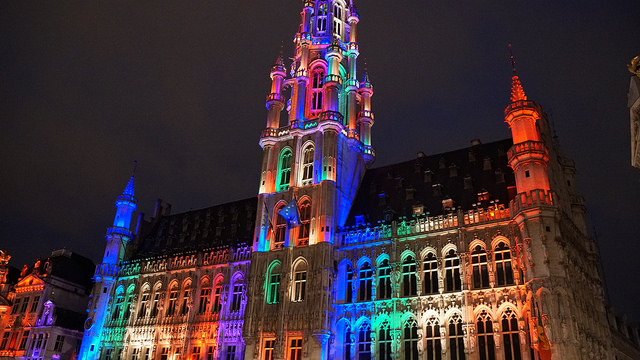Marx famously wrote that history repeats itself, first as tragedy, and then as farce. He was right about the repetition, and about the sheer lunacy of how historical moments repeat. However, farce is at the very least amusing, and there is little humor to go around as the American cycle of violence continues its seemingly endless iterations. As we once again try to make sense of a senseless tragedy, the familiar characters have all taken their places in their respective positions and are even now on stage, repeating their lines from a tired script.
I have little to add; instead, I have a few thoughts that do not necessarily relate to each other, listed below. I’m writing from Worcester, Massachusetts, far from Orlando, but I lived in Miami and do feel some connection to the state of Florida, so my comments might be slightly more visceral than normal.
1. As we mourn the loss of the innocents in Orlando, and do what we can to support their families, we should remember that the struggle for LGBTQ rights continues. Earlier, the police caught another would-be murderer who planned to kill at the Los Angeles Pride parade. America has made huge progress in the struggle for LGBTQ equality, and is currently one of the most progressive countries in the world on the issue. Nonetheless, we still have to fight on for full rights for gay, lesbian, bisexual, transgender, and queer people.
2. What happened in Orlando was terrorism and hate, as Obama said. It was hate because the victims were targeted based on their sexual orientation. It was terror because it was designed for maximum carnage to make a statement in favor of a religio-political entity, the IS. Many have pointed out the media’s double standard in calling the Orlando violence terror. People who say this are right to do so: the violence in Atlanta, for example, against the black AME churchgoers, was also terrorism.
3. Obviously, the average Muslim is not a terrorist. But there is a relation to Islam, and there is such a thing as Islamist extremism that has to be rooted out. While these strands are most visible in Islam recently, it is also true that Christianity, Hunduism (e.g. India’s ruling Hindu-fascist party), Buddhism (e.g. the Buddhist terror violence against Muslims in Burma), and the other religions have these problems as well. It is not Islamophobic to say that what happened has something to do with Islam, and not some off-the-wall argument to say it has something to do with religion. To say this is neither an argument for nor against Islam or religion; instead it is doing what we need to do, taking stock of the situation.
Many of the world’s major religions and their texts have problematic verses, and different members of the faithful read these verses in different ways. There are verses that appear to be anti-gay, anti-woman, or pro-violence in the Quran, in the Christian New Testament, and in other holy books. It is from these verses, at least in part, that groups like ISIS, the Westboro Baptist Church, the Hindu mobs in India, and others draw their claims for legitimacy. To dismiss this is to dismiss the work of progressive theologians working to interpret these verses differently; dismissal means throwing away the coin of which the progressives are the flipside.
For example, this guy is a very very horrible person within the realm of Christianity. There’s no difference between him and an ISIS leader (aside from his talk of using the “proper channels” to kill gays). Religious progressives should try and are trying to win the theological battle in their faiths against these and other less extreme, but still pernicious, beliefs (as the gay Imam in Washington and others like him are doing in Islam, as the Episcopal Church and the United Church of Christ do in Christianity, etc.).
4. Guns. Why would a person who has been investigated – not once, but twice – by the FBI be able to obtain an assault weapon? We Americans need to curb our gun culture dramatically: get rid of assault weapons, semi-automatic weapons, etc. We need need national anti-gun laws that parallel Massachusetts and New York. These states keep guns out of the hands of criminals, or they would, if the criminals couldn’t easily travel to Virginia, Florida, and other such states to buy them easily. As Obama himself noted days ago, the FBI has the power to stop a suspected terrorist from traveling, but not from buying a gun. As a society, we still have to figure out how to both respect the legitimate rights of gun owners and stop dangerous people from having weapons.
5. It’s right to politicize the issue. Calls by people not to “politicize” the issue are misguided, because there is an ongoing problem of gun violence, of terrorists, of homophobia and what it inspires. These problems demand solutions, and the only earthly solutions to these problems are primarily political; they come through the auspices of the state, and it is up to those of us who care to make sure those in charge of the state do the right thing.
Photo by Miguel Discart under a Creative Commons copyright.
